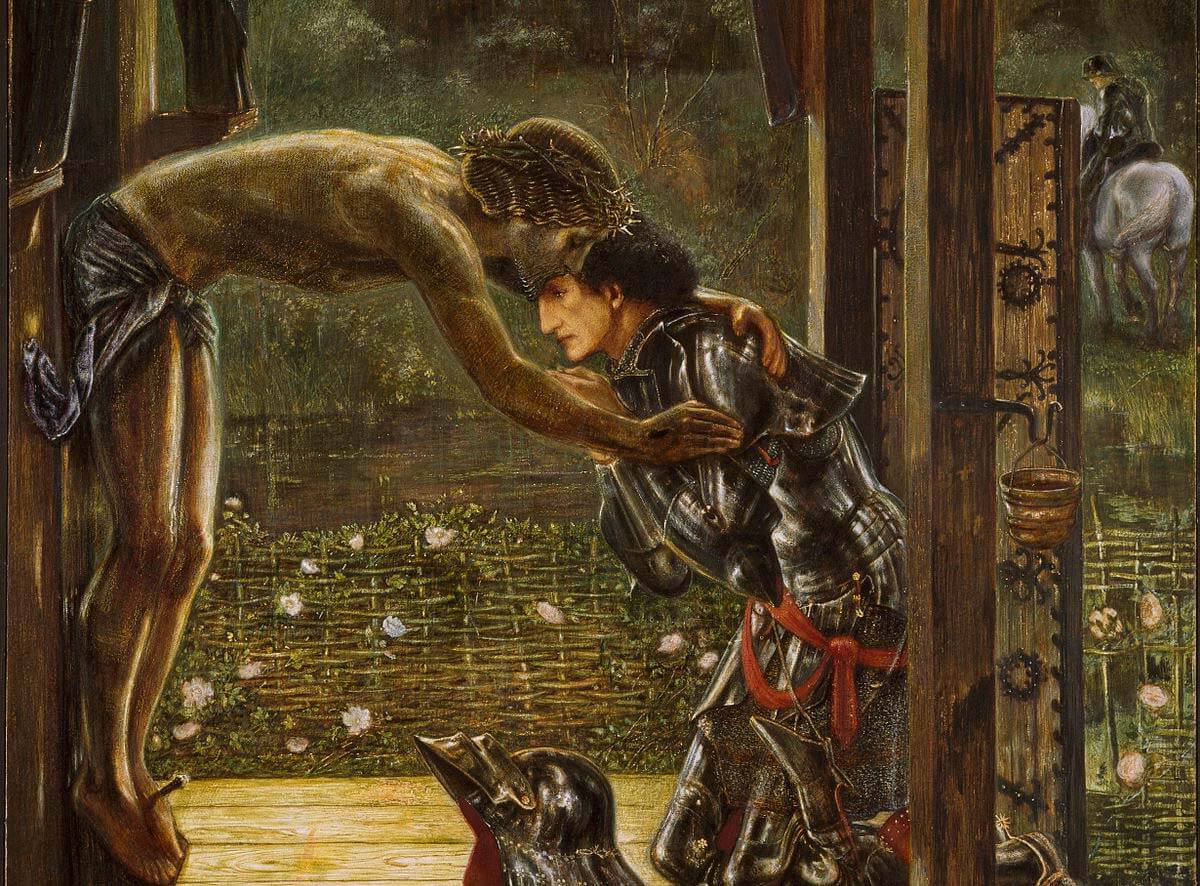John Gualberto was an Italian noble born into the Visdomini house in 985, the younger brother of Hugo Gualberto. When he was still young, John’s brother Hugo was murdered.
On Good Friday of 1003, John was entering Florence surrounded by his company of armed men. As he turned a corner into a narrow lane, he came face to face with the man who had murdered his brother. John could have easily had the man killed; there was no escape. In an outburst, the man fell to his knees and asked for forgiveness, citing the fact that it was Good Friday.
John refused. He raised his weapon, preparing to kill the man who had taken his brother’s life and ruined others. Right before he struck him, the man said, “Jesus, Son of God, at least you forgive me.” John dropped his weapon, picked up the man, and embraced him. “For Christ’s sake, for His blood poured out on the Cross for us, I forgive you.”
John dismissed his men and went to the church to pray. As he was praying, the head of Christ on the crucifix bowed its head in recognition of his mercy. John went on to join a Benedictine monastery and was canonized on October 24th, 1193.
Father Tom Wilson joined Patrick Conley on The Inner Life to discuss the power of forgiveness, how we find the strength to do it, and how Christ is the perfect example of mercy.
Forgiveness is not necessarily a natural thing for us to do. Likewise, it’s not necessarily something that can be done in one fell swoop. Mercy and the discovery of our power to forgive are very often parts of a journey. The primary reason we’re even in a position to forgive is that we have been hurt or wounded by somebody we did not think would do so. It’s a shocking, and sometimes traumatic experience. Our natural reaction is to lash out, to seek retribution, or to fight back. But Jesus doesn’t have any interest in maintaining the status quo. As Christians, we are called to be radically different.
As Patrick pointed out, we live in a very feeling-centric society. We act on our feelings a little too often, and that can lead to all sorts of issues in relationships and friendships, notably resentment, contempt, and people holding grudges for offenses. As discussed on a previous episode of The Inner Life, we are all entitled to the natural reaction of righteous anger and indignation when we are hurt, but the key is to prevent it from becoming sinful.
So, how do we get past our feelings? How do we get past the desire to hold on to the grudges of the past? How do we learn to live and let live? As human beings, we are all subject to our faults and defects. We will all make mistakes, big and small. Some will be private, but some will be public. And when considering the level of mercy that we should have on those around us, think first about the level of mercy we might want God to have on our souls when we meet Him in heaven.
God is the ultimate role model. We seek to imitate Him in all things. So when we acknowledge the fact that He is all-powerful, all-loving, all-knowing, and all-merciful, aren’t we also seeking to love and forgive as He does? Without limit?
“You have heard that it was said, ‘You shall love your neighbor and hate your enemy.’ But I say to you, love your enemies, and pray for those who persecute you, that you may be children of your heavenly Father, for he makes his sun rise on the bad and the good, and causes rain to fall on the just and the unjust.” (Matthew 5:43-45)
Tune in to The Inner Life weekdays at 11am CT


